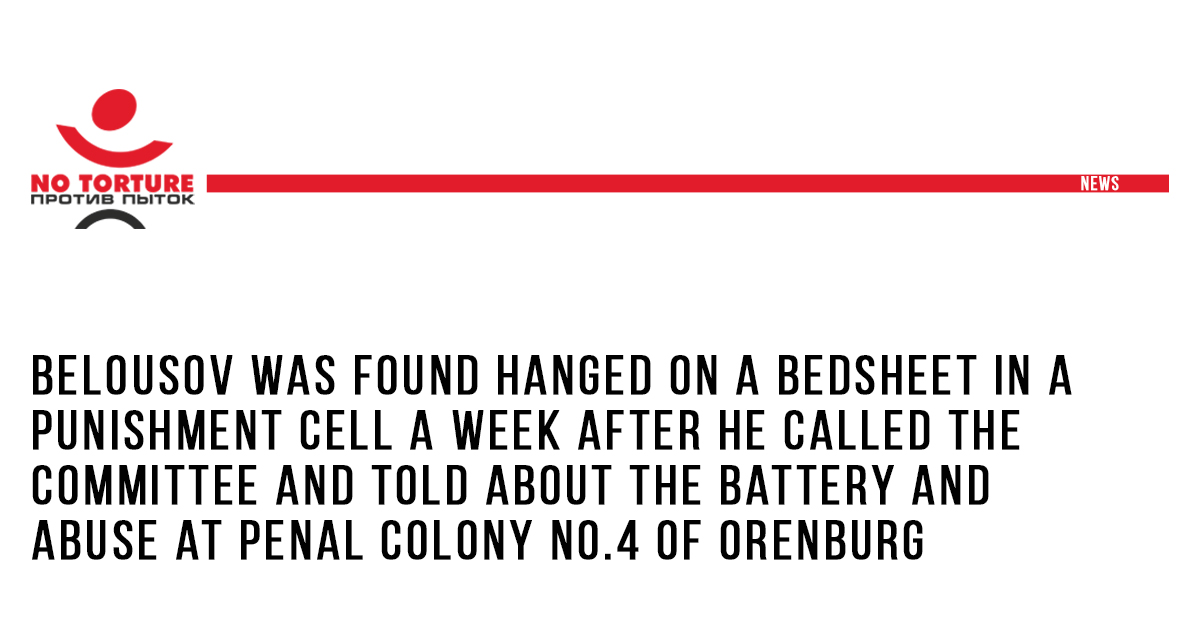Lawyers with the Committee Against Torture submitted an application to the ECHR on behalf of the parents of convict Aleksandr Belousov, informs lawyer with the Committee Timur Rakhmatulin. Belousov was found hanged on a bedsheet in a punishment cell a week after he called the Committee and told about the battery and abuse at Penal Colony No.4 of Orenburg.
On 5 August 2019, Belousov told human rights defenders that the officers of the Federal Penitentiary Service of Russia regularly torture him and other convicts – dip their heads in the toilet pit, put them in stretching position, beat them up. In addition, he informed that he was suffering from asthma but did not receive an adequate medical assistance. The convict reported that he wanted to commit suicide and asked to pass the information to the Prosecutor’s Office and spread it in social networks and mass media.
On the next day, lawyer with the Committee Against Torture Timur Rakhmatulin pass the information on tortures to the Prosecutor’s Office.
On 12 August 2019, an unidentified person called the Orenburg branch of the Committee and informed that Aleksandr Belousov hanged himself. Belousov’s parents also contacted the Committee Against Torture, and after that we applied to the Investigative Committee and filed a number of motions on performing checking activities.
On 3 September 2019, the Investigative Department of the Investigative Committee of the Russian Federation for the Orenburg region opened a criminal case provided by part 1 of Article 110 of the Criminal Code of the Russian Federation (“incitement to suicide”). For 22 months of the investigation, the criminal case was dismissed four times due to absence of the criminal event.
In their application to the ECHR, lawyers with the Committee Against Torture pointed out that, in violation of Article 2 of the European Convention (right to life), the state did not perform an effective investigation of Belousov’s death in the aspect of the responsibility of Penal Colony No.4 officers. In addition, in violation of Article 3 (prohibition of torture), no effective investigation was conducted after the reports on brutal treatment were submitted. Previously, the ECHR had already established the fact of tortures in Penal Colony No.4 of Orenburg – a convict and an applicant of the Committee told about batteries back in 2012.
